Michelstadt
Otto Rahn in Wikipedia
Otto Wilhelm Rahn (n. Michelstadt, 18 de febrero de 1904 - 13 de marzo de 1939) fue un escritor alemán aficionado al esoterismo, la historia y el medievalismo. Miembro del Partido Nazi y Obersturmführer de las SS, su figura está asociada a las creencias esotéricas del ocultismo nazi extensamente difundidas en dicho cuerpo militar. Nació y se crio en el seno de una familia de clase media. Por influencia de su padre, juez en la ciudad de Maguncia, inició estudios de Derecho, aunque también le agradaba la música y era un buen pianista. Durante 4 años (de 1922 a 1926) estuvo matriculado en las facultades de Derecho de Giessen, Friburgo y Heidelberg.
Отто Ран в Википедии
Отто Вильгельм Ран (нем. Otto Wilhelm Rahn (18 февраля 1904, Михельштадт — 13 или 14 марта 1939, гора Куфштайн близ городка Куфштайн, Тирольские Альпы, Австрия) — немецкий писатель и исследователь, археолог-любитель, сотрудник Аненербе, оберштурмфюрер СС.
Otto Rahn in Wikipedia
Otto Wilhelm Rahn (February 18, 1904—March 13, 1939) was a German medievalist and a Obersturmführer (First Lieutenant) of the SS, born in Michelstadt, Germany.
Speculation still swirls around Otto Rahn and his research. From an early age, he became interested in the legends of Parsifal, Holy Grail, Lohengrin, and the Nibelungenlied. While attending the University of Giessen he was inspired by his professor, the Baron von Gall, to study the Albigensian (Catharism) movement, and the massacre that occurred at Montségur. Rahn is quoted as saying that "It was a subject that completely captivated me''".
Work
Otto Rahn Bio
Berlin between the wars was a city known throughout Europe for its bohemian subculture of young intellectuals. Amongst the personalities who hotly debated the many modernist “isms” that were fracturing the old ideological certainties that had glued together the 19th century, few individuals were more colorful or conspicuous than a febrile dark-haired, green-eyed young man called Otto Wilhelm Rahn.
Rahn was welcomed in the cafes and nightclubs of 1930’s Berlin because he was a hyper-intense intellectual – a brilliant talker with a great deal to say but he was also a conspicuous outsider in that he was unfashionably dismissive of the emergent modernism that so excited his peers. Moreover, he had even less empathy with the cynicism and decadence that colored there lifestyle. Rather, like that of most Germans outside of Berlin, Rahn’s sensibility had been molded by influences wholly incompatible with the café society avante-garde.
English translator's foreword to Crusade Against the Grail
WHEN URBAN VERLAG IN FREIBURG published the first edition of Crusade Against the Grail [Kreuzzug gegen den Gral] in 1933, the book was not an immediate bestseller. But its eloquence deeply moved those who read it. One so moved was Albert H. Rausch, the 1933 Georg Biichner prizewinner who published under the pseudonym Henry Benrath. Rausch wrote an introduction for the book called Kreuz und Gral [Cross and Grail], which eventually appeared in the Baseler Nachrichten later in the year.
Editorial Reviews to First English Translation of Crusade Against the Grail: The Struggle between the Cathars, the Templars, and the Church of Rome
Book Description
The first English translation of the book that reveals the Cathar stronghold at Montségur to be the repository of the Holy Grail<
• Presents the history of the Papal persecution of the Cathars that lies hidden in the medieval epic Parzival and in the poetry of the troubadours
• Provides new insights into the life and death of this gifted and controversial author
Отто Ран и сокровища альбигойцев
В Третьем рейхе был еще один человек, который выбрал целью своей жизни поиски Святого Грааля. Однако если для Гитлера священная чаша оставалась мистическим символом, этот исторический персонаж подошел к теме как прагматик - он был убежден, что Грааль существует на самом деле и его вполне можно отыскать и потрогать руками. Речь идет об Отто Ране, историке-самоучке и "черном" археологе. Он утверждал, что Святой Грааль необходимо искать среди сокровищ альбигойцев. АЛЬБИГОЙЦЫ (лат. albigenses) - еретическая секта, ветвь секты катаров. Существовала в Южной Франции (провинция Лангедок). Свое название получила от области Альбижуа. Впервые термин "альбигойцы" появился в 1181 году.
Otto Rahn (Dutch)
Otto Rahn werd geboren in Michelstadt (Odenwald) op 18 februari 1904. Na zijn middelbare studies (en de eerste wereldoorlog) trekt hij naar de universiteit waar hij aanvankelijk rechten studeert. Maar al spoedig gaat zijn belangstelling uit naar de literatuur en laat hij zich inschrijven aan de faculteit der letteren in Heidelberg. Zijn droom is literair recensent te worden voor een krant of tijdschrift.
Als muziekliefhebber dweept hij met Wagner. Diens "Parsifal" brengt hem in contact met de graallegenden en hun Duitse auteur Wolfram von Eschenbach. Die studie zal hem nooit meer loslaten.
Otto Rahn Biography
CHRONOLOGY 1904-1939
18 Feb 1904 Otto Rahn born, Michelstadt. Parents Karl & Clara (nee Hamburger)
1910-1916 Junior school at Bigen
1916-21 Secondary school at GrieBen
1922 obtains Baccalaureat
1924 obtains Bachelor in Philology and History
1930 Rahn begins his European travels (Paris, Provence, Switzerland,
Catalonia, Italy)
1931 Rahn visits French Pyrenees. Visits "Spion" in Pyrenees with Himmler and Abetz
1932 Rahn leads a Polaires expedition in Pyrenees
13.12.33 Rahn joins the German Writers Association
1934 publishes "Kreuzzug gegen Gral" (Crusade against the Grail)
1935 appointed to personal staff of Heinrich Himmler
29.2.36 Rahn joins Allgemeine-SS, member 276 208
1936 Rahn visits Iceland with 20 men
1937 publishes "Luzifers Hofgesind. Eine Reise zu denguten Gelstern Europa" (Lucifer's Court in Europe; Rahn sent back to Languedoc (Montsegur), says he will return in 1939. Time of alleged Corbieres visit?
20.4.37 promoted to sub-lieutenant (Untersturmfuhrer)
Sep-Dec1937 military service for "disciplinary reasons" at Oberbayern Regiment, Dachau<
Otto Rahn – Otto Skorzeny Raiders of the Found Ark?
The founders of the Third Reich were esoterically involved with matters which unavoidably skirt the mysteries associated with the valley of Rennes-le-Chateau. Their interests were not however, confined to the ephemeral, there is evidence of the tenacity with which they pursued the material associations of the valley. Many assorted books on Rennes-le-Chateau mention that a battalion of German mining engineers made excavations in the area during World War Two.




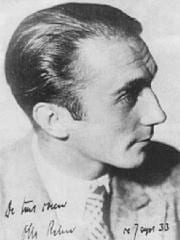
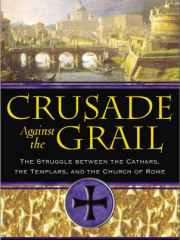
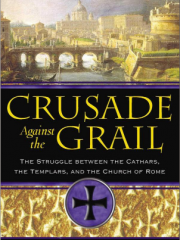
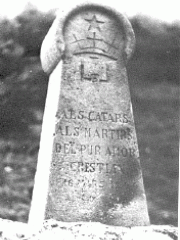
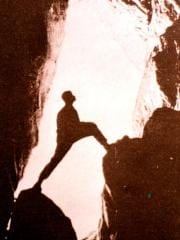
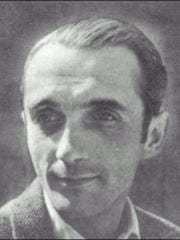
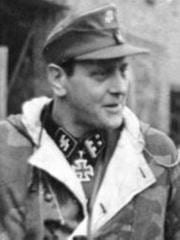
Commentaires récents
il y a 13 années 47 semaines
il y a 13 années 47 semaines
il y a 13 années 47 semaines
il y a 13 années 48 semaines
il y a 13 années 51 semaines
il y a 14 années 4 semaines